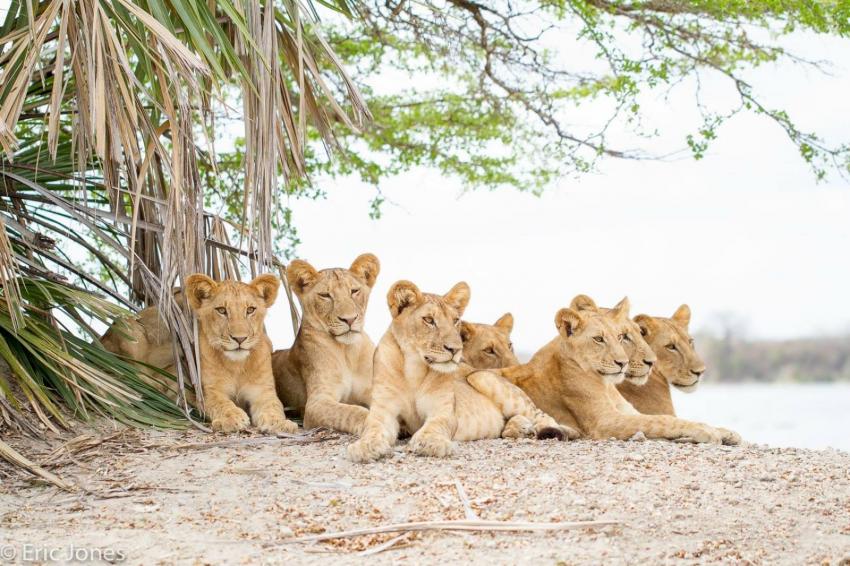So after a little research, you’ve decided that Tanzania is the safari destination for you. Perhaps you’ve found a lodge that you love or maybe you just know which wildlife reserves and parks you want to visit. But what about all the other nitty-gritty details of planning a safari adventure? In this article, we’ll share with you 10 things you should consider before booking a Tanzania safari tour and how to go about it the easy way.
1. Check your passport and visa requirements
First things first, make sure your passport is current or apply for a passport if you don’t already have one. It’s also important that your passport has at least six-month validity from the time you plan to travel and at least two blank pages for each of the countries you plan on visiting (one for the entry stamp and another for the exit stamp).

Once you’re sure your passport is in good order, make sure you have any necessary visas to enter Tanzania. Most travellers will be eligible for a visa on arrival at Tanzania’s international airports but some will need to apply for a visa before departure.
2. Check what vaccinations you need
The vaccinations you need will depend on the countries you are visiting (aside from Tanzania) and the previous stabs you’ve had. So schedule in a checkup with your doctor well before your travel date and get their recommendations on any vaccinations you may need.

Aside from diphtheria, tetanus, measles, rubella and polio, the World Health Organization also recommends being vaccinated against hepatitis A, hepatitis B, rabies and typhoid. Unless you’re coming from an infected area, a yellow fever vaccination certificate is not officially required to enter Tanzania.
Keep in mind that some vaccinations are administered over the course of a few weeks, so don’t leave it to the last minute! Your doctor will also be able to advise on a malaria prevention strategy that suits your individual health and lifestyle.
3. Decide on the best time to visit
The dry season from June to October is generally considered the best time to visit Tanzania, with sunny skies, reduced vegetation and limited water sources that make it ideal for wildlife spotting. The lack of rain also means there will be fewer mosquitoes in the evenings when compared to the wet season. If you want to see the wildebeest migration in full swing, then June and July are the best times to visit. However, you should be aware that the parks can get quite crowded during this period and accommodation rates are at their highest.

The wet season from November to May is an ideal time to visit if you want to see Tanzania’s landscapes at their lushest or witness the myriad migratory birds that flock to the saturated wetlands. Late-January to February is the best time to see the wildebeest calving in northern Tanzania, with adorable scenes of newborns taking their first steps. Another benefit of travelling during the wet season is the reduced accommodation rates and far fewer crowds compared to the dry season.
4. Organise travel insurance
While the chances of anything going wrong on your private safari in Tanzania are slim, it’s always good to be on the safe side and take out travel insurance. This will cover you in the case of medical emergencies and/or evacuation to the nearest hospital, as well as give you peace of mind if your luggage is lost or anything is stolen.

It’s important to remember that a Tanzania safari will immerse you in the habitat of wild animals who will defend themselves if they feel threatened. So it’s essential that you heed all safety warnings from your guides and never step outside of your vehicle when there are wild animals in the surrounds.
5. Check airline luggage restrictions

While checking the luggage restrictions for your international flight is important, it’s also essential that you check the regulations for internal domestic flights. Most local Tanzanian airlines use Cessna Grand Caravans or similar aircraft that are capable of carrying 9 to 13 passengers, with luggage restricted to 15 kg per passenger. These restrictions are enforced and luggage must be carried in soft-sided bags or suitcases, with no hardshell cases permitted.
6. Pack appropriately
Once you’ve determined how much luggage you can take, it’s time to start packing. Opt for lightweight and quick-dry clothing that’s designed for the great outdoors, with layers that can easily be slipped on or off as temperatures change. Beige, green and brown colours are preferable so you’ll be camouflaged in the savannah and won’t attract attention from animals.

Remember to pack long-sleeve shirts and pants that will protect you against mosquitoes in the evenings, as well as mosquito repellant. A hat that won’t blow off while you’re out on game drives is also essential, as is broad-spectrum sunscreen to protect you against the sun. Other things to consider are a pair of binoculars so you can view wildlife and birds up close and a plug converter (Tanzania uses types D and G) so you can charge your electrical items.
7. Invest in a good camera

While you’ve probably got a decent camera on your phone, it’s not going to compete for quality with a mid-range DSLR with interchangeable zoom lenses. If you’ve ever needed an excuse to invest in one, then a Tanzania safari is it! A good quality DSLRand lens kit will enable you to capture all the action (both up close and from afar) and come away with incredible wildlife shots to share with your family and friends. For the best results, purchase a lens with at least 100x zoom (although 200x or 300x is even better!)
8. Learn a few words of Swahili
Africa is home to around 2,000 languages, with 26 different languages spoken in Tanzania alone. But don’t worry, as English is one of the two official languages! The other is Swahili, which is a fun language if you want to learn a few phrases to test out during your safari.
Greetings and salutations are important in Tanzania and not something that should be rushed. So learning how to say “Jambo?” (“How are you”), “Nzuri" (“Fine”) and “Asante” (“Thank you”) will go down well with the locals.
9. Add on a beach escape

One of the reasons why Tanzania offers some of the best safaris in Africa is because of its long stretch of Indian Ocean coastline and offshore islands. There’s no better way to complete your safari than with a few days kicking back on a white sandy beach or diving and snorkeling in the marine-filled waters.
Zanzibar Island is the obvious choice for many, with its intoxicating spice trade history. But you can also head to one of the resorts on nearby Pemba Island or splurge at the exclusive island of Mnemba. If you want to stay on mainland Tanzania, you can spend a few days on the stunning beaches that surround the Swahili town of Pangani or on the secluded sands of Sange Beach.
10. Book with a reputable operator
Planning a Tanzania safari package can feel overwhelming, with so many things to consider and keep in mind. Booking with a reputable safari tour operator is an easier alternative, with the added benefit of local insights and knowledge to ensure you have the adventure of a lifetime.

A Tanzania safari specialist can help you to secure lodge and camp deals that you won’t find by booking directly, as well as handle all the logistics of airport transfers when you arrive or overnight accommodation if you’re flying in late. They’ll also be able to answer all those questions you might have that are specific to your destination: How much should you tip your guide? Where can you exchange money? Are there local villages to visit?
Not only will you have a stress-free safari adventure but you’ll come away with memories to last a lifetime.
Want to book your Tanzania safari with a responsible tour operator? Come travel with us!


 1-321-766-6821
1-321-766-6821 












